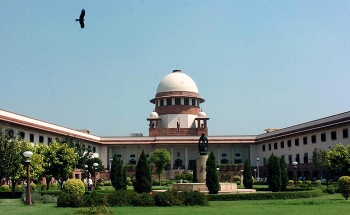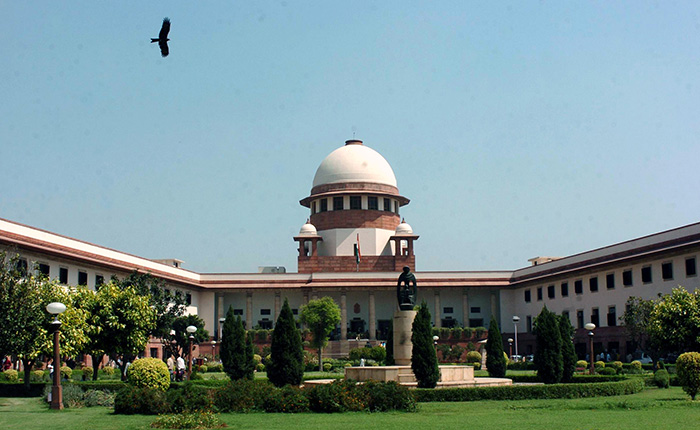
.jpg) Dr. I. John Mohan Razu
Dr. I. John Mohan Razu

One wonders whether the government and its law enforcing authorities, especially the police, understand what constitutes dissent and what is the definition of sedition. The police force in the country by and large seems to be mixing “deliberately” or “selectively” these two legal entities quite often -- “not knowing” or “knowingly, not knowing”. Citizens are increasingly wonderstruck whether the police innocently frame charges or deliberately act by filing charges under “sedition” against those who dissent from the policies and programs of the government.
One classic example is of advocate Shiv Sagar Tiwari who contended before the Supreme Court that Farooq Abdullah of Jammu and Kashmir had committed a grave error against the country by claiming he would restore Article 370. His plea was that Abdullah should be punished for sedition. He also alleged that Abdullah stated that China would restore Article 370. “The statement of Farooq Abdullah is nothing but anti-national and seditious. If such acts are not controlled by the government, then other people like the ‘tukde-tukde’ gang having anti-national thoughts will provoke anti-national activities, destroying the peace of country,” the petition had stated.
The Bench asked the petitioner to produce the alleged statement of Abdullah, which the petitioner failed to do so. The court further asked: “Are you aware that the issue (on scrapping of Article 370) is pending in this court?” “We must penalize people for filling such petitions for publicity,” the Bench said and punished the petitioner by imposing a fine of Rs. 50,000 and asked him to deposit the same in advocates’ welfare fund.
Substantiating further, the court said, “There is nothing in the statement which we find so offensive as to give a cause of action for a court to initiate proceedings. Not only that, the petitioners have nothing to do with the subject matter and this is clearly a case of publicity interest litigation for the petitioners only to get their name in press. We must discourage such endeavors.” The court’s order that dissent does not amount to sedition assumes significance in view of the allegations of misuse of the stringent provision.
Section 124A of IPC, which talks about sedition, has been invoked frequently against people and activists such as Disha Ravi who expressed their opinions and views against the governments and solidarity in faviour of farmers and those languishing in jails. The observation of the Supreme Court adds value and strength to many as it emphasized that citizens should not be prosecuted for expressing their opinions against the Centre and its policies.
Though there has been ‘hiccups’ in some of the judgements, many verdicts in recent weeks have assumed great significance. The tactics of intimidating and frightening the young millennials and others like Farooq Abdullah by the State via the police have failed as courts do not see “dissent” as “sedition”.
Since 2019, the Young India, in particular, has been vociferously expressing their views on several issues. But those criticizing the policies and programmes of the government are facing lots of problems and go through horrifying times. Some of them are subjected to police brutalities. The State is irked by the uprisings and protests across the country; the Government is using the police and para-military force to silence the growing mobilization of people.
The brute State is giving absolute power to the police and other agencies to attack the protesters and quell people’s movements. A totalitarian regime spews venom to protect its power in harsh and ruthless ways.
According to the U.S.-based think-tank Freedom House, a global watchdog that measures democratic profiles on its parameters, India is sliding on democratic values and practices.
Freedom House, a non-government organization known for its credibility, has lowered India’s status to “partly free” based on reports on political rights and civil liberties in the country.
If citizens, civil society organizations and judiciary fail to intervene to put the democracy back on its rails, the settings we live would become much worse. It is apparent that the current ruling dispensation is increasingly cracking down the opposition political parties and its leaders, civil society organizations, and sectoral movements; it is silencing journalists, intimidating and stifling the media, students and the intelligentsia.
What is happening to our democracy is obvious. Internet shut down in India is the highest in the world. The Government is paranoid to comments and statements issued on matters of concern by other countries. The State is branding people anti-nationals. Freedom of speech is gravely under threat. Fear, intimidation and bullying are the order of the day. Democracy is not working as those who speak their mind are silenced.
India is moving towards “emergency type” and as days pass-by it would be worse than the emergency of mid-1970s. We have been increasingly witnessing the waning of habeas corpus. Selectively, journalists, activists, academics, critics, dissenters, political leaders and intellectuals are arrested. Fabricated stories and charges are framed for their detention and many languish in the jails for years.
In short, India is moving from “free India” to “partly free India”. We should reckon with the fact that democracy is more than conducting elections – Parliamentary and Legislative Assembly. Democracy is not just a number game, it’s much more than that. Tsai Ing-Wen said: “Democracy is not just an election. It’s our daily life.”
(Dr. Indukuri John Mohan Razu is a Professor of Social Ethics at the United Theology College Bangalore)